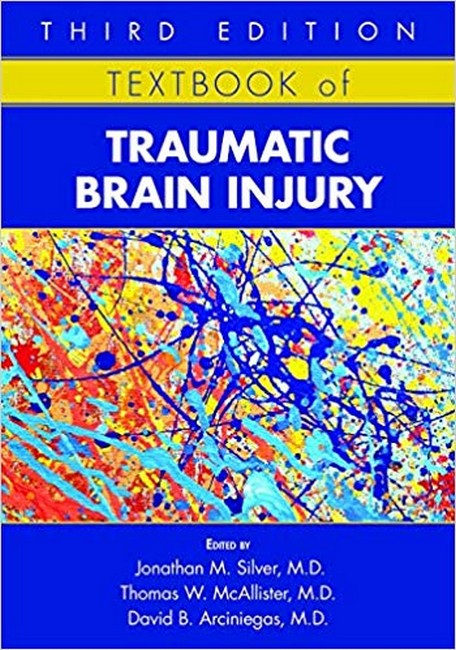Description
ForewordPrefacePart I: Epidemiology and PathophysiologyChapter 1. Epidemiology of Traumatic Brain InjuryChapter 2. Biomechanical Forces Involved in Brain InjuryChapter 3. PathophysiologyPart II: AssessmentChapter 4. Neuropsychiatric AssessmentChapter 5. Clinical ImagingChapter 6. Genetic FactorsChapter 7. Electrophysiological AssessmentChapter 8. Neuropsychological AssessmentChapter 9. BiomarkersPart III: Neuropsychiatric Aspects of Traumatic Brain InjuryCognitionChapter 10. Disorders of ConsciousnessChapter 11. Acute Traumatic EncephalopathyChapter 12. Neurocognitive Disorders Due to Traumatic Brain InjuryChapter 13. Awareness of DeficitsChapter 14. Social CognitionChapter 15. Neurodegenerative DementiasEmotionChapter 16. Epidemiology and Natural History of Psychiatric DisordersChapter 17. Mood and Anxiety DisordersChapter 18. Emotional DyscontrolChapter 19. Posttraumatic Stress DisorderBehaviorChapter 20. Disorders of Diminished MotivationChapter 21. Behavioral DyscontrolChapter 22. Psychotic DisordersChapter 23. SuicideSomaticChapter 24. Sleep Disturbance and FatigueChapter 25. Posttraumatic HeadacheChapter 26. Dizziness, Imbalance, and Vestibular DysfunctionChapter 27. Vision ProblemsChapter 28. Chronic PainChapter 29. Sexual FunctioningChapter 30. Pituitary DysfunctionChapter 31. Posttraumatic EpilepsyPart IV: Special Populations and IssuesMild Brain InjuryChapter 32. Overview of Mild Brain InjuryChapter 33. Pathophysiology of Mild Traumatic Brain InjuryChapter 34. Assessment of Sports-Related ConcussionChapter 35. Military Mild Traumatic Brain InjuryChapter 36. Mild Traumatic Brain Injury in Children and AdolescentsChapter 37. Multidisciplinary Assessments and TreatmentChapter 38. Persistent Symptoms After Mild Traumatic Brain InjuryOther PopulationsChapter 39. Neuropsychiatric Sequelae of Traumatic Brain Injury in Children and AdolescentsChapter 40. Chronic Disease Management for Lifelong Brain InjuryChapter 41. Substance Use DisordersPart V: TreatmentChapter 42. Family InterventionChapter 43. Systems of CareChapter 44. Activity, Participation, and Community IntegrationChapter 45. Psychological Adjustment to the Effects of a Moderate to Severe Traumatic Brain InjuryChapter 46. Cognitive RehabilitationChapter 47. Environmental and Behavioral ManagementChapter 48. Principles of PharmacotherapyChapter 49. Complementary and Alternative TherapiesChapter 50. Clinical Legal Issues

